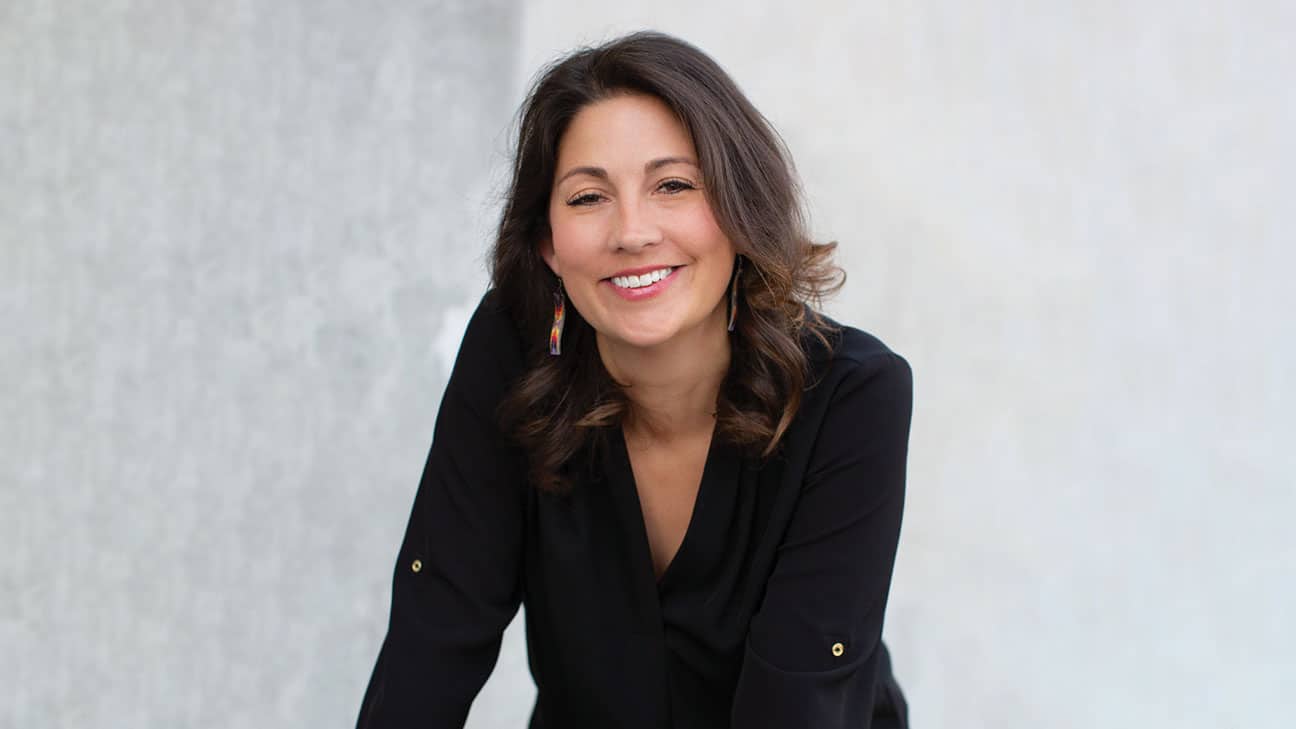
Jenn Russell, a Choctaw tribal member, was recently elected and currently serves as chair of the board of directors at the Denver Indian Health and Family Services Clinic.
Russell named Denver Indian Health and Family Services Clinic Board Chair
Published July 7, 2022Jenn Russell has always had a passion for health and wellness. For the last 15 years, she’s taken that passion and directed it towards her community, helping improve the lives of native people across the country.
A recipient of the Chahta Foundation scholarship for graduate school, Russell now works at the Centers for American Indian and Alaska Native Health at the University of Colorado, Denver. She was also recently elected to chair the board of directors at the Denver Indian Health and Family Services clinic.
“I have always had a passion for community and community health and wellness. Even though I grew up outside of the Choctaw counties, I’ve always had a very big sense of pride in my heritage,” said Russell.
Russell, who grew up in Denver, Colorado, says she saw the inequities faced by Natives in urban areas.
“Seventy-eight percent of American Indian/Alaska Natives live in urban areas, and they’re severely underfunded, compared to tribal and rural or rural-based reservations,” said Russell.
According to Indian Health Services (IHS), American Indians and Alaska Natives die at higher rates than other Americans in many categories, including chronic liver disease and cirrhosis, diabetes mellitus, unintentional injuries, assault/homicide, intentional self-harm/suicide and chronic lower respiratory diseases.
Having someone like Russell working to help Natives live better, healthier lives is part of the solution to this disparity.
“I wanted to put my passion and my work into making sure that American Indian and Alaska Native people [in urban areas] were getting the health care opportunities and their needs met,” said Russell.
While Russell mainly works in an urban setting, she still directly works with the Choctaw Nation, giving back to her tribe.
“Right now, I’m funded by the Indian Health Service as a contractor to provide technical assistance and services to 27 different tribal communities around the country. The Choctaw Nation is one of those,” said Russell.
Russell said she’s been working on Tribal Injury Prevention Cooperative Agreement Program (TIP CAP) for the last five or six years. TIP CAP is a grant process that provides funding for tribes to develop their infrastructure in injury prevention to address the disparity in injury rates throughout Native communities.
As a contractor for IHS, Russell collaborates with these communities to help make sure their programs are a success.
“We provide assistance with everything from evaluation to assist them and showing how those programs are effective at preventing injuries amongst tribal members,” Russell said.
Previously Russell has worked with the Choctaw Nation’s Injury Prevention Program to help teach about the dangers of distracted driving. Currently, she’s working on a program with the Nation to ensure kids are safely secured in car seats. Go to Injury Prevention Program webpage for more information on the car seat program.
Russell is also proud of her time working on the Special Diabetes Program for Indians.
“I got to work with 67 communities on that and saw the wonderful efforts and the passion of all these communities that went into it,” she said.
From diabetes to distracted driving to car seats, Russell exhibits her Choctaw spirit in her everyday work, and she hopes others will do the same.
Russell said, “There is a great need, especially amongst our people, to provide these services to ensure that tribal members are receiving health care equitably…health care is something that will always be needed and is certainly needed right now.”
“I am really thankful for all the efforts that the Choctaw Nation has put into being inclusive and encouraging to tribal members that live outside of the 10 1/2 counties. I grew up with a sense of pride in my heritage and the Tribe and felt included even though I wasn’t there,” said Russell.